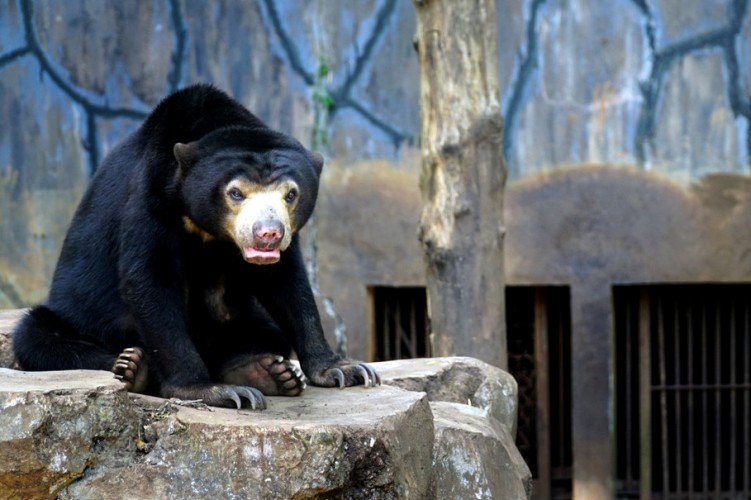
Jakarta Globe:
Jakarta. With the global spotlight currently falling on the Bandung Zoo over its alleged poor management practices, the Conservation Policy Working Group of Indonesia has urged the House of Representatives and the government to amend conservation laws.
The working group, which consists of the Communication Forum of Community Forestry (FKKM), WWF Indonesia, Tropical Forest Conservation Action Sumatra, Indonesia Center for Environmental Law (ICEL) and the Wildlife Conservation Society, pushed for an amendment of the 1990 Law on Conservation of Natural Resources and Ecosystems, claiming that the prescribed penalties are inadequate.
The ICEL said despite being run as a private institution, a conservation centers such as the Bandung Zoo has a legal responsibility to comply with animal health standards, provide a comfortable, safe spaces for them, and ensure that they receive adequate veterinary care.
The ICEL believes the case involving the zoo's sun bears points to a clear violation.
"There needs to be a strict mechanism for law enforcement and monitoring, so we can prevent more cases like this," ICEL researcher Wenni Azkia said on Tuesday (24/01).
"As the management, they have a responsibility to take care of the animals and to educate visitors on the animals' natural habitats and inspire them to conserve the environment too," Wenni said.
The researcher said the lack of enforcement by the relevant authorities results in a zero-care attitude towards wildlife conservation.
The statement rang true from the viewpoint of Indonesia-based environmental organization, the Scorpion Wildlife Trade Monitoring Group, which alleges that 90 percent of the country's zoos are in poor condition.
The group, which recorded the widely seen video footage of the sun bears, took a keen interest in the Bandung Zoo after the death last year of a Sumatran elephant named Yani. The group alleges that the zoo still fails to comply with proper standards.
"We took the first video in May [last year], and another in January, and it's still the same. The cage is still dirty; the bears are still eating their own feces and begging for food from visitors, while zoo officials are still letting them do that," said Marison Guciano, the group's senior investigator.
Marison said the group suspects the poor conditions are causing the bears to become stressed, especially as it hardly represents their natural habitat, and their eating habits have changed because visitors are throwing food at them.
The group sent a letter to the zoo management and the West Java Conservation Agency (BKSDA) in September to address the issue, but saw no change, nor response.
The Ministry of Environment and Forestry took to Twitter on Wednesday to calm the situation as conservationists stepped up pressure on the Bandung Zoo.
An independent veterinary team that visited the zoo last week found that the animals were in good health and Environment Minister Siti Nurbaya Bakar indicated that her ministry's law enforcement directorate general will invite the Margasatwa Tamansari Foundation – which manages the Bandung Zoo – and the Scorpion Wildlife Trade Monitoring Group to discuss the matter further.
"We appreciate the invitation, and it would be the right place to explain our case as a whole," Marison said. "But if the Bandung Zoo was more responsive to the issue, it would not have blown out of proportion like this. It now appears as if we are the evil ones here."
In May last year, thousands of netizens signed a petition to save the Bandung Zoo, which already appeared to be mismanaged at the time. (Jakarta Globe)
Bandung Mayor Ridwan Kamil also raised concerns over conditions at the zoo and asked whether the management needed help with funding and managing the only animal conservation center in the West Java capital.
Link to the Jakarta Globe report